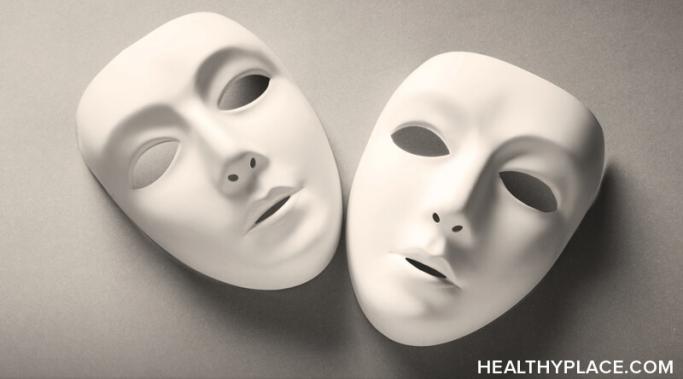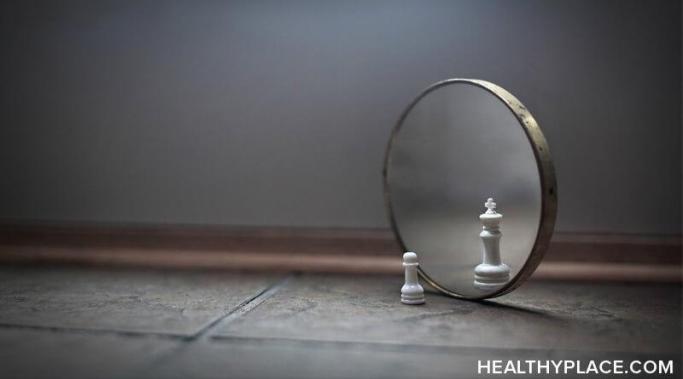In the perfect world, things would go according to plan. We would achieve our weight-loss goal and feel amazing, fall in love and create the perfect relationship together, or start meditating and discover inner peace. But life is not linear–sometimes the steps we think will take us forward actually shift us to the side, or even backwards. This can happen with self-esteem. Though we achieve one of our goals, our self-confidence takes a sudden dip. Why does this happen? And what can we do to recalibrate?
Achieving Your Goals
Baby steps are a great way to build self-esteem. It's kind of like climbing a mountain: From the distance, we see a simple shape. It looks easy enough to climb if we just start walking uphill. Yet the closer we get, the more we realize that what looked like a basic silhouette is actually filled with valleys, cliffs, detours, and falling rocks. Suddenly, we start to question ourselves. Where do we start? How much energy will it take? What happens if we get turned around? This is when we can turn to baby steps to build self-esteem. When we measure our progress in smaller increments, we have more opportunities to reflect on our progress and make sure we are headed in the right direction.
Mindfulness affects your self-esteem, and often, when we think about mindfulness, many of us picture a happy person meditating peacefully while the sounds of "ohm" echo in the background. Without our realizing it, this picture incepts a formula into our subconscious: mindfulness plus quiet serenity equals self-love. Yet for many of us, quiet serenity is not something easily check off on our to-do list–our days are filled with busy streets and office chairs, not Zen gardens and floor cushions. Does this mean self-love is unachievable? Not at all. Even when serenity is unavailable, one powerful tool we can use towards building self-esteem is mindfulness.
Bad habits--they're pesky little things, aren't they? I imagine just reading the phrase makes you picture one of yours. Maybe your bad habit is biting your nails, or not responding to texts, or leaving the dishes in the sink. It's the thing you do that deep down, you know you don't like. But sometimes our bad habits aren't just small annoyances. Sometimes they burrow into our identity and affect our ability to build self-esteem. When bad habits affect self-esteem, what do we do?
A quick story about toxic people and self-esteem: Imagine you decide to plant a tiny sprout in your garden. When it flourishes, it will bring you deep joy. But first, it needs your focus and care to grow. Those who come into your garden and see your sprout give you support and space, encouraging your progress. But occasionally, a different kind of person comes into your garden. Knowingly or unknowingly, they march across the soil, step on your plants, and in the worst-case scenario, grind your tiny sprout into nothing.
How's your body image? Are you attractive? Do you like the way you look? Do other people think you're beautiful? It's hard to talk about body image without sinking deep into our most vulnerable places. As standards of beauty become progressively less realistic (hello Instagram filters, goodbye pores), being able to have an honest conversation with ourselves about our looks becomes increasingly difficult. Yet we each live within our own, unique bodies every day–being able to look at them in a realistic (and non-damaging) way is a valuable tool towards understanding who we are, developing a healthy body image, and ultimately towards building self-esteem.
Do we have to conquer fear? I've gone through some changes in my life recently that have me thinking about fear. In particular, how we react to feeling afraid. Why are some fears considered perfectly acceptable, while others fill us with shame and demand action? Being afraid of an aggressive animal, an impending surgery, or a loved one experiencing harm are all considered rational and acceptable. Yet we tend to hide our fears of social interaction, object/behaviors that feel uncomfortable, or people who affect us. So, what makes certain fears unpalatable? What makes us decide a fear is unfounded or embarrassing? Why are some fears allowed, while other fears must be conquered?
Accountability matters when we're building self-esteem. We do not like to do things wrong. As children, many of us are taught that wrongdoing results in punishment. We learn to deny mistakes, to avoid the "bad" experiences that result from being blamed. Yet though we may learn to avoid culpability, we never stop making mistakes–they are a natural part of life. So, what happens when we shift away from denying mistakes and focus on using accountability as a tool to build self-esteem?
"Be yourself." "You do you." "Listen to your heart." The messages behind authenticity are beautiful ones: you are the center of your world and you are the only voice that matters. But while such phrases are inspiring, we live in a world that bombards us with beliefs, opinions and general emotional noise. This creates a dilemma that many of us struggle with–how do I think like myself when everyone and everything is trying to tell me how to think?
If I could talk to the teenage version of myself about authenticity, I know what I would say. I would tell her the very things she is afraid make her "weird" are actually the things that make her awesome. I would tell her to stop wasting energy being afraid of judgment, and to put that energy towards enjoying the things that make her happy.









